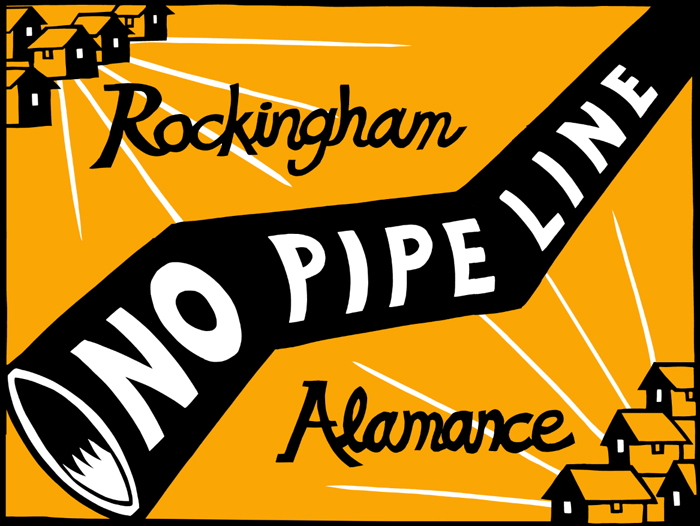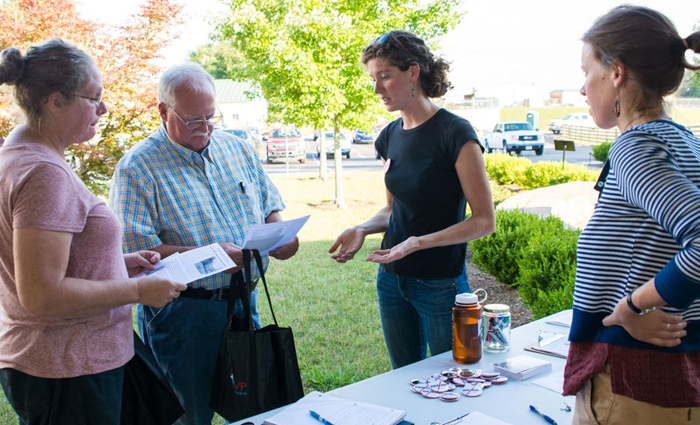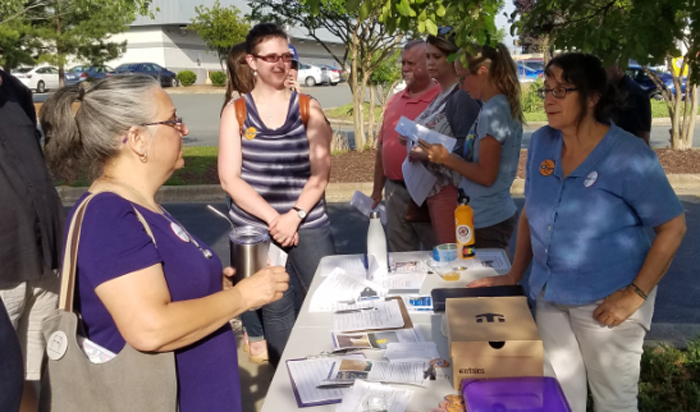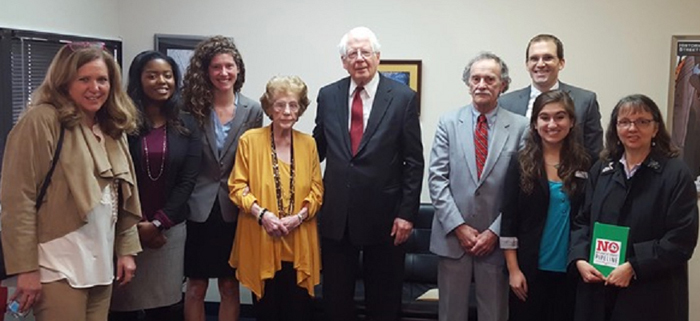
This week brought two major victories in the Sierra Club’s fight against fracked-gas pipelines when the U.S. Court of Appeals for the Fourth Circuit threw out permits for the proposed Mountain Valley Pipeline (MVP) and Atlantic Coast Pipeline (ACP).
“The tide is turning against projects once considered inevitable,” says Doug Jackson, deputy press secretary for the Sierra Club’s Beyond Dirty Fuels campaign.
The legal challenge to the Mountain Valley Pipeline was brought by the Sierra Club and five other mostly local or regional groups, while the case against the Atlantic Coast Pipeline was argued by the Southern Environmental Law Center on behalf of the Sierra Club and two other organizations.
Grassroots pressure was also brought to bear over the last several months by Sierra Club volunteers and staff in North Carolina and Virginia, through which the planned pipelines would run.

The last week of June, the Sierra Club helped turn out local residents and landowners in those two states to open houses hosted by Mountain Valley Pipeline representatives along the pipeline’s proposed route. Above and below, Sierra Club volunteers talk with local residents in Burlington, N.C.

“At each open house there were over 50 landowners, many of whom had received our postcard, which volunteers helped stamp and address,” says North Carolina-based Beyond Dirty Fuels organizer Caroline Hansley. “We handed out buttons, stickers, yard signs, and literature about the dangers and risks of this kind of pipeline. And every person who spoke was against the pipeline.”
Back in March, volunteers with the Sierra Club and partner groups met with U.S. Representative David Price, who represents most of Raleigh, Durham, and Chapel Hill, asking him to send a letter to the Federal Energy Regulatory Commission (FERC) requesting a re-hearing on the Atlantic Coast Pipeline, jointly proposed to be built by Duke Energy and Dominion Power.
“The meeting went really well,” Hansley says. “For some of our folks, it was their first time lobbying a member of Congress. Representative Price ended up sending a strong letter to FERC requesting a re-hearing not only for the Atlantic Coast Pipeline, but for the Mountain Valley Pipeline as well.”

Among those lobbying Price were constituents Jane Flowers Finch (at left, above) and her mother Pearl Finch (standing next to the congressman). The elder Finch penned this op-ed, which ran in the Raleigh News & Observer.
“Just as [North Carolina] wants to lead in technological innovation, educational opportunities and political progress, we can lead the transition to clean, renewable energy,” Finch wrote. “We are one of the top states for solar energy, our governor has come out against offshore drilling, and now, we can lead by being the state that stopped the Atlantic Coast Pipeline.”
Two months later, on May 15, the Fourth Circuit Court of Appeals ruled that the U.S. Fish and Wildlife Service’s approval of the ACP did not comport with the law, asserting that its safeguards against harming endangered species were “so indeterminate that they undermined the objectives of the Endangered Species Act.”
 The ACP would also cross the Blue Ridge Parkway, which creates over $1 billion in economic benefits in Virginia and North Carolina. The Sierra Club and its coalition partners argued that because the agencies issuing the permits might decide that the pipeline crossings of the forest and parkway might need to be rerouted, the project should be halted along the entirety of the ACP's route.
The ACP would also cross the Blue Ridge Parkway, which creates over $1 billion in economic benefits in Virginia and North Carolina. The Sierra Club and its coalition partners argued that because the agencies issuing the permits might decide that the pipeline crossings of the forest and parkway might need to be rerouted, the project should be halted along the entirety of the ACP's route.
On August 3, FERC ordered the Mountain Valley Pipeline to halt all construction except for stabilizing the soil to prevent erosion. MVP responded by proposing to immediately complete 45 miles of new construction. “Bless their hearts,” says Virginia Chapter Director Kate Addleson, “but not in a million years.”
One week later, on August 10, FERC ordered a halt to all work on the Atlantic Coast Pipeline. But that same day the Commission caved and approved MVP’s cynical plan to complete 45 new miles of pipeline. The Sierra Club and its partners immediately announced they would seek relief in both the D.C. Circuit and the Fourth Circuit.
Three days later, the Fourth Circuit ruled in the coalition’s favor, ordering all work to temporarily stop along the entire routes of both the Atlantic Coast and Mountain Valley Pipelines. The court threw out ACP permits needed to cross the Blue Ridge Parkway, and ordered MVP to cease all pipeline-related activity in the Jefferson National Forest.

Photo courtesy of Mountain Valley Watch
“While this is only a temporary halt, we expect it to be a significant delay for a project that just a few days earlier had to announce on an investor call that it was pushing back its in-service date,” says Doug Jackson.
Sierra Club Senior Attorney Nathan Matthews calls the Fourth Circuit Court’s ruling “a victory for everyone who values clean water.”
Adds Joan Waker, senior campaign representative for Beyond Dirty Fuels: “Courts are recognizing there is no right way to build gas pipelines, and the people won’t stop fighting them until they are permanently halted.”
Partnering with the Sierra Club in making the legal case against the Mountain Valley Pipeline are Wild Virginia, Appalachian Voices, The Wilderness Society, Preserve Craig, and Save Monroe. The legal case against the Atlantic Coast Pipeline was made by the Southern Environmental Law Center on behalf of the Sierra Club, Defenders of Wildlife, and the Virginia Wilderness Committee.